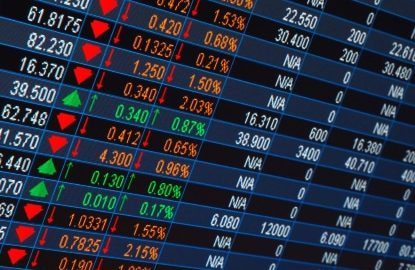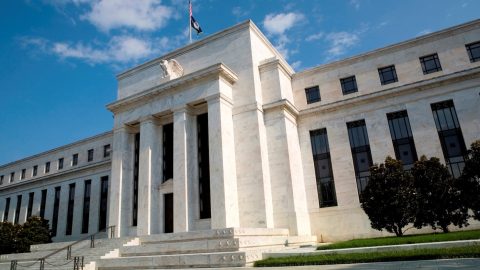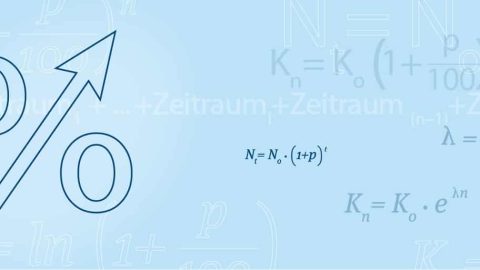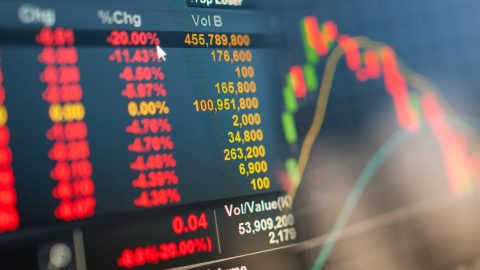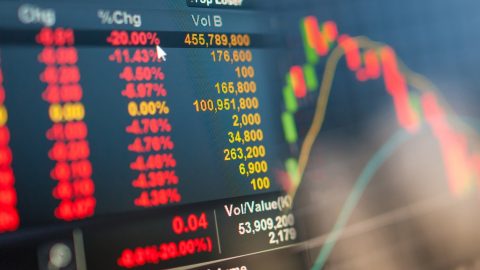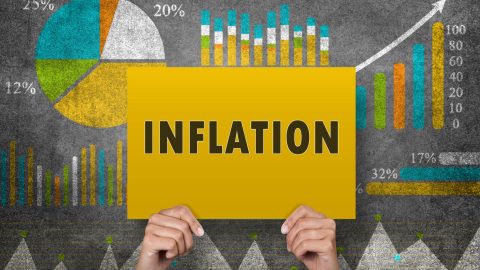All articles on the topic “Markets”

World Economic Forum Davos 2019: about economic downturn and trade war
In view of a trade war, the Brexit and the threat of an economic downturn, the World Economic Forum meeting this year was dominated by calls for increased international cooperation. Read here what Lagarde and Merkel had to say.
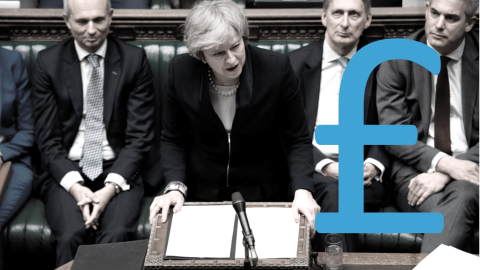
After the Brexit vote: 4 scenarios for the British pound
After the British House of Commons rejected the Brexit vote: How will things develop and what are the 4 scenarios for the British pound?
Ten theses for 2019
Read our recent blog post on the ten theses for financial market development in 2019. Is fear of a recession exaggerated?
Stock markets in 2018 – market activity dominated by politics and volatility
2018 was a year of politics in the stock markets. Find out which three major topics dominated the international market activities in the current year.
Market remains cautious
The positive reaction to the agreement between the USA and China on not further escalating the trade conflict for the time being was only short-lived. Risky assets remain under pressure. A number of factors continue to burden the markets.
Economic outlook 2019: reasons to remain optimistic
Economic Outlook 2019: There are signs that the world economy will slow down next year. Read here why there are still reasons to be optimistic!

Slovakia: moving towards long-term sustainability?
The engine of the economy in Slovakia is running on a good momentum. In recent years it has been going through a cyclical upswing. Take a look at the drivers, but also consider potential threats going forward.
Brexit agreement ahead of vote in British Parliament
The “divorce agreement” of the British with the EU stands. At the highly anticipated EU Special Summit on Sunday, Britain and the EU agreed on their post-Brexit relations at the end of March 2019. Now only the vote in the British House of Commons is missing. It’s getting tight.

China’s future: long-term growth initiatives and dangerous asymmetries
The People’s Republic of China is one of the winners of globalisation – but the strong economic growth has also created asymmetries within the Chinese economy. Read more about how the “Made in China 2025”-strategy will help and what role the new silk road plays.
US Congressional election results
The outcome of the US Congressional election on Tuesday has caused some relief in the international financial markets. Read more about it in our blog.
Romania: losing its shine
On January 1st 2019, Romania will assume the Presidency of the Council of the European Union: an opportunity to regain its shine as a true growth champion and supporter of European values. But how is the country’s economy doing?
Financial markets 2018: reasons to be cautiously optimistic
The financial markets have been on the rocks in 2018. Read here why you should still keep a cautiously optimistic stance.

Brazil: fundamentally sound companies despite political uncertainties
In the current environment of global uncertainties in emerging markets due to idiosyncratic events in Turkey and Argentina, the trade conflict between the USA and China and with regard to the presidential election, late September was probably one of the most exciting times to visit Brazil. Find out more in our latest blog entry.
US earnings season in full swing
The US earnings season is back in full swing. The first results for Q3 of 2018 are promising, particularly in the banking sector.

Attractive yields for emerging markets bonds in local currencies
On 17 October 2018, ERSTE BOND LOCAL EMERGING celebrated its 10th anniversary – a perfect time to have a closer look at the asset class “Emerging markets bonds in local currency ”. More in our Blog.

Stirred, not shaken – A first take on last week’s stock market meltdown
Last week, the S&P 500 lost more than 3%, followed by another loss of more than 2% on the next day. Read about the reasons behind this decrease in our new blog!
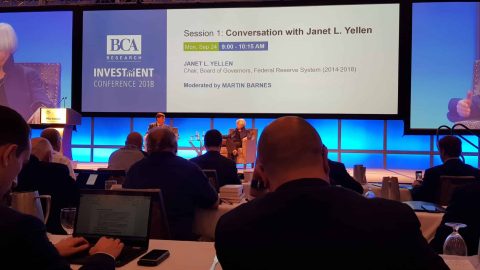
BCA Investment Conference in Toronto: How to navigate wealth to prosperity in a late stage of the business cycle
Every year the independent investment research provider BCA organizes an outstanding event for investment professionals from all over the world to come together and have a vibrant discussion about recent challenges in financial markets.

Tenth year anniversary: global financial crisis kick off
Ten years ago, the Lehman bankruptcy made huge waves in the stock markets. The after-effects of the financial crisis can still be felt today. More in our blog.
Financial Markets Monitor September – conclusion: cautiously optimistic
As long as the underlying investor sentiment remains positive and investor confidence does not tilt, we are optimistic about the autumn on the capital markets. Find out more about the outlook for the global financial markets in our new blog.
Back-to-school-season makes summer a second Christmas season for US retailers
US retailers are looking forward to another high-turnover back-to-school-season leading up to the start of the new school year. This time of the year plays an important role in the US and is regarded as the second-strongest sales driver after Christmas season.

Strong USA, weak emerging markets, risk of inflation – is the economic boom drawing to an end?
This blog entry will discuss three scenarios for the coming quarters and the coming year.
YIELD RADAR: September 2018
Annualised real global GDP growth amounts to slightly above 3%. The composition of growth is not homogenuous. While the US economy grows strongly, the weakening loan growths puts weight on the economic activity in China. Find out more in the current yield radar.
Germany remains Europe’s driving economic power
Germany is not only the largest, but also one of the strongest economies in the Eurozone and the EU. This is reflected, among other things, in its stable economic growth. In 2017, Germany’s GDP increased by 2.2 per cent compared to the previous year, only slightly less than the total Eurozone growth of 2.4 per cent.
Financial Markets Monitor August: We remain optimistic
The month since the previous meeting in July had been a positive one for investors willing to take risks. Thus, the optimistic risk stance of our team paid off. It is therefore not surprising that the team remains optimistic.
2018 set to be a record year for mergers
2018 could be a record year for mergers, at least if the exceptional first half of the year is any indicator. However, it is this development that makes analysts sceptical as to whether and for how long this pace can be maintained. Will this current bout of mergers soon come to an end?

Short-term stabilisation on the financial markets
After several “mini-shocks” throughout the year such as inflationary fears in the USA and a temporary crisis of trust in connection with Italian government bonds, quite a bit of uncertainty has already been priced into the market. Will the current phase, which is characterised by rising share and bond prices and that comes with credit risk be only a short-lived one? Or have the markets generally entered calmer waters?

Turkish lira – what are the reasons behind the current crisis?
The Turkish lira reflects the difficult situation Turkey is currently in. This year alone, the currency has shed more than 45% of its value to date. Interview update with Anton Hauser, Senior Fund Manager, Eastern Europe bonds.
Market view: Increased uncertainty
The performance of most asset classes in the year to date has been mixed, to put it euphemistically. Is there a common underlying factor? Can we expect to see a better second half of the year?
Post-election Turkey – What’s next?
Has the political and economical backdrop improved as result of the election in Turkey? In our newest blog post we’re answering 7 of the most important questions.
Financial Markets Monitor June: a lot going on
An Investment Committee again! A month can pass quickly, especially if there is a lot going on in the markets. In light of recent market events (Italy, Turkey, Argentina), I was surprised that our risk stance has not changed since our last Investment Committee meeting. Obviously, it takes a lot to get us out of […]
30 years of falling interest rates – what is ahead of us?
Let’s start with a trip down memory lane: Do you remember the scenery 30 years ago – on the financial markets, and in our personal lives? The 1980s – many of the older generation are still thinking back to the “good old times”. There were no smartphones and no data kraken. Instead, we had shoulder […]
Is Turkey about to run into a balance of payments crisis?
The Turkish central bank was forced to raise its most important interest rate by 300bps and to re-align its monetary instruments. What are the reasons for this nosedive?
Italy: slipping into a crisis in confidence
The heightened uncertainty over whether Italy will repay its debts and whether it will remain a member of the eurozone has led to a sell-off in securities. Our chief economist Gerhard Winzer gives an overview.
Financial Markets Monitor May: positive opportunities outnumber negative ones
Positive opportunities still outnumber the negative ones on the capital markets – that was the conclusion of our Investment Committee. Our willingness to take risks is still optimistic and also moderately higher than in April.
Rising interest rates in the USA
The sentiment of the financial market participants has deteriorated in the past months, with the losses across numerous asset classes in the year to date seemingly the driving factor. Now we have to ask ourselves: are we at the outset of a new trend, or is this just a case of increased volatility? The general decline in prices has gone in conspicuous tandem with the increase in three important financial market ratios:
Croatia hits fever pitch
No, this is not an article on football, and any football reference is purely coincidental. This is an article on the football nation whose economy is (finally) showing positive trends and has (finally) been awarded a one-notch rating upgrade by two rating agencies, S&P and Fitch, this year. Only one notch away from the much-desired investment grade rating, the Croatian economy remains on sound footing before tackling its last challenge.
IMF conference in Washington: cautiously upbeat sentiment about emerging markets
Senior Funds Manager Felix Dornaus summarises his learning points from the presentations by the International Monetary Fund in Washington on 20 to 23 April 2018. Who were the winners and who the losers?

Turkey´s astonishing rush to early elections
Amalia Ripfl, Senior Fundmanager explains Turkey´s rush to early elections: who profits and what does it mean for the equity market?
Bleaker sentiment on the financial markets
The environment on the financial markets has become a bit bleaker. Growth rates of industrial output and the survey-based indicators for economic growth are falling, while the trade conflict between the USA and China and the tense geopolitical situation in the Middle East has caused the risk for global growth to increase further. Will the environment remain generally supportive to risky asset classes?
Judging Managers’ Character
It is often overlooked and due to its elusive nature, there is no standardized way to judge someone’s character. The topic rarely appears in textbooks or professional courses, and investors are generally skeptical about their ability to asses it. Which leads to the following question: Is it knowable? In other words, is there some reliable way to judge someone’s character?
Financial Markets Monitor April: upside-down scenario
On 3 April, we held our monthly Investment Committee meeting. Only three weeks after the previous one – three weeks that were tightly packed with issues, as we can see in the performance data of the most important asset classes. Equities and high-yield bonds have lost value, whereas Eurozone government bonds and emerging markets bonds have recorded gains. An upside-down scenario, compared to previous months.
US Fed tightens its monetary policy
The most important central bank of the world, the US Fed, increased the Fed funds rate on 21 March and also published projections for economic key indicators. Even though this does not sound like much, the implications for the markets are significant.
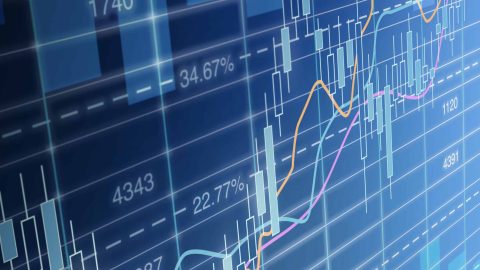
Financial Markets Monitor: we have stepped up the risk of our asset allocation by a notch
On 14 March our Investment Committee met, and as always, we started out on a discussion of our risk stance, i.e. our risk assessment. From my point of view, four findings of the discussion are worth bringing up here:
Protectionism: Risk of a trade war with the US?
The announcement by the US President, Donald Trump, to levy import tariffs on steel (25%) and aluminium (10%) has made waves. Can the favourable economic environment be toppled an will we see a trade war between the US and the EU?
Quo Vadis Italia? – The 2018 general election in Italy and its importance to the economy
The economic environment for Italy remains challenging. The fundamental problem is the low economic growth. Although the composition of the future government is still unclear, the party programs imply a persistent reform deadlock.
Ten new determining factors for the capital market
The economic environment for the capital markets is subject to change as we speak. About one and a half years ago, the global economy shifted from recovery to boom, which was very advantageous for the markets. The features were strong, broadly based economic growth, low inflation, very supportive monetary policies, good earnings growth, and limited price fluctuations on the markets. We have now started leaving this best of all worlds (“Goldilocks scenario”) in more and more categories.
Investment stories in Latin America
The BBVA Latin American Local Markets Conference in London gave Christian Gaier, senior fund manager of government bonds of emerging markets, the chance to talk to local Latin American representatives. In our blog he shares some of the insights he gained and the narratives that may affect 2018.
Market Monitor: After the market correction, confidence outweighs
The year 2018 had started on such a promising note – is what we all were thinking. But at the beginning of February, the market taught us a lesson. As a result, the discussions at our first Investment Committee of the year at the beginning of February were interesting ones.
How does inflation work? – Part 2: Inflation drivers
There are many factors that may affect inflation. Also, the weights of certain factors may vary across countries. Take the development of the exchange rate, for example.
Inflation worries burdening stock exchanges – part 2: the macro perspective
Equity indices have undergone a global correction in the past days. The Dow Jones index has shed more than 10% from its January high. What is the macro-economic reason for the correction?


